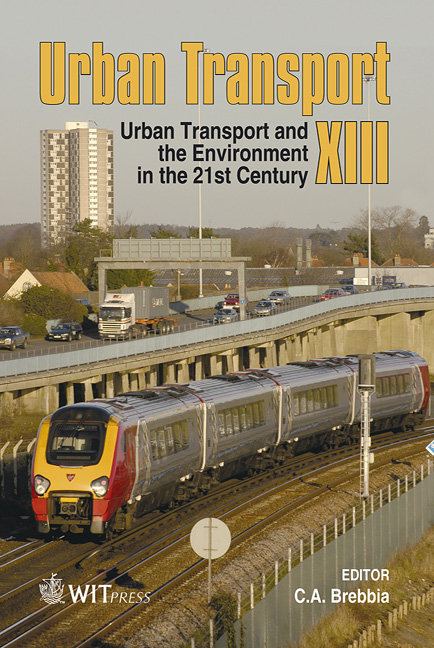A Dynamic Adaptive Decision Framework: Integrating Transport And Land Use Measures Aimed At Traffic Congestion Reduction
Price
Free (open access)
Transaction
Volume
96
Pages
10
Published
2007
Size
570 kb
Paper DOI
10.2495/UT070501
Copyright
WIT Press
Author(s)
W. Heyns & C. B. Schoeman
Abstract
Much has been written about the desperate need to seek alternative solutions to the urban traffic congestion problems we face today. To manage these problems three main streams of intervention have evolved from supply, demand and land use management paradigms. Whilst their underlying measures all have the ability to reduce traffic congestion one way or another, little has been done to integrate the measures of each stream using a decision framework or process to facilitate the selection of site specific measures supporting local traffic and transport conditions. This paper reports the results of an empirical investigation by which a Multi-Criteria Analysis based dynamic adaptive decision framework was developed which screens through selected measures, identifying those that have the potential to alleviate site specific traffic congestion and transpose them into an integrated strategy. In assessing its usefulness and workability it was found to be capable of producing integrated strategies with the ability to manage traffic congestion, encourage sustainable development and alleviate some site specific development challenges. Keywords: land use, transport, integration, sustainable development. 1 Introduction The failure to integrate land use and transport in traditional transport planning in cities has resulted in the decline of public transport and the ever increasing dominance of the private car. Growing traffic congestion is a major problem as road user demand keeps outstripping the supply of road infrastructure. In
Keywords
land use, transport, integration, sustainable development.





